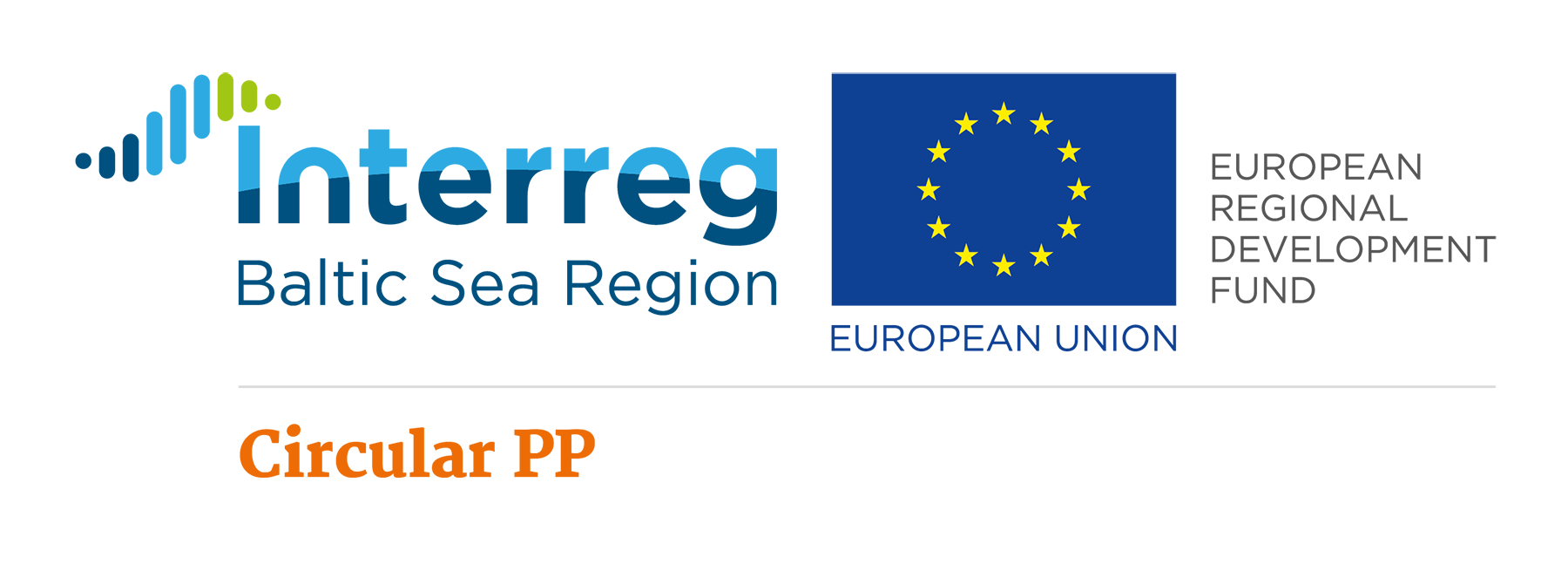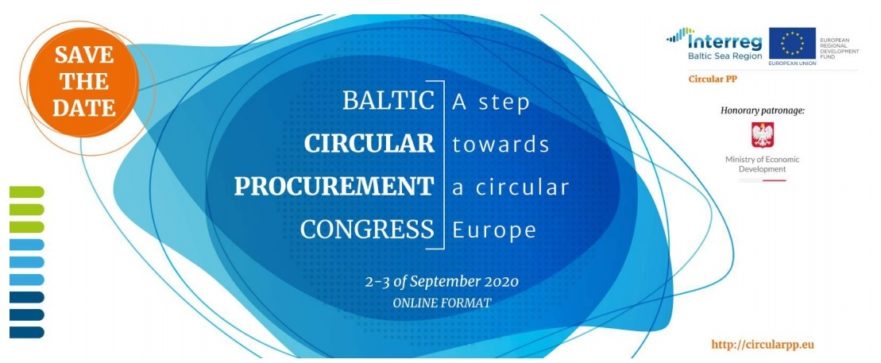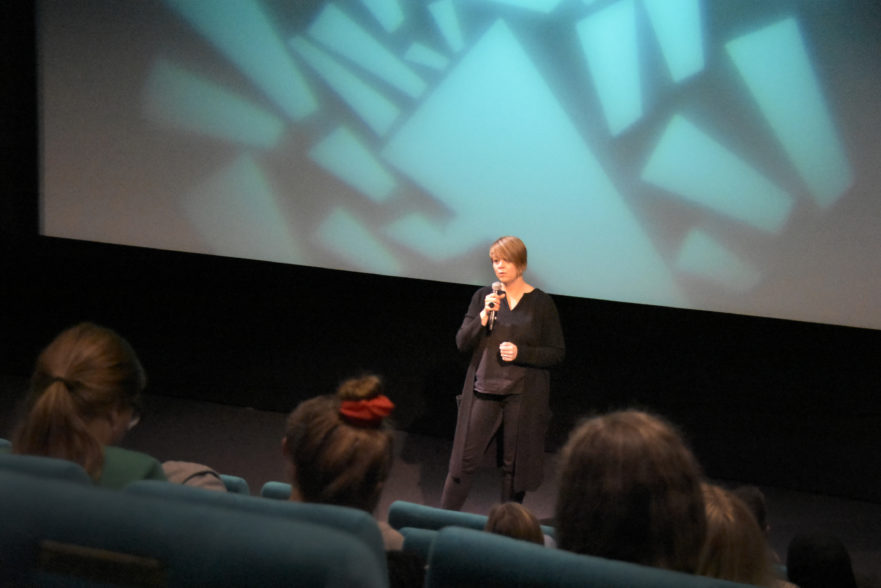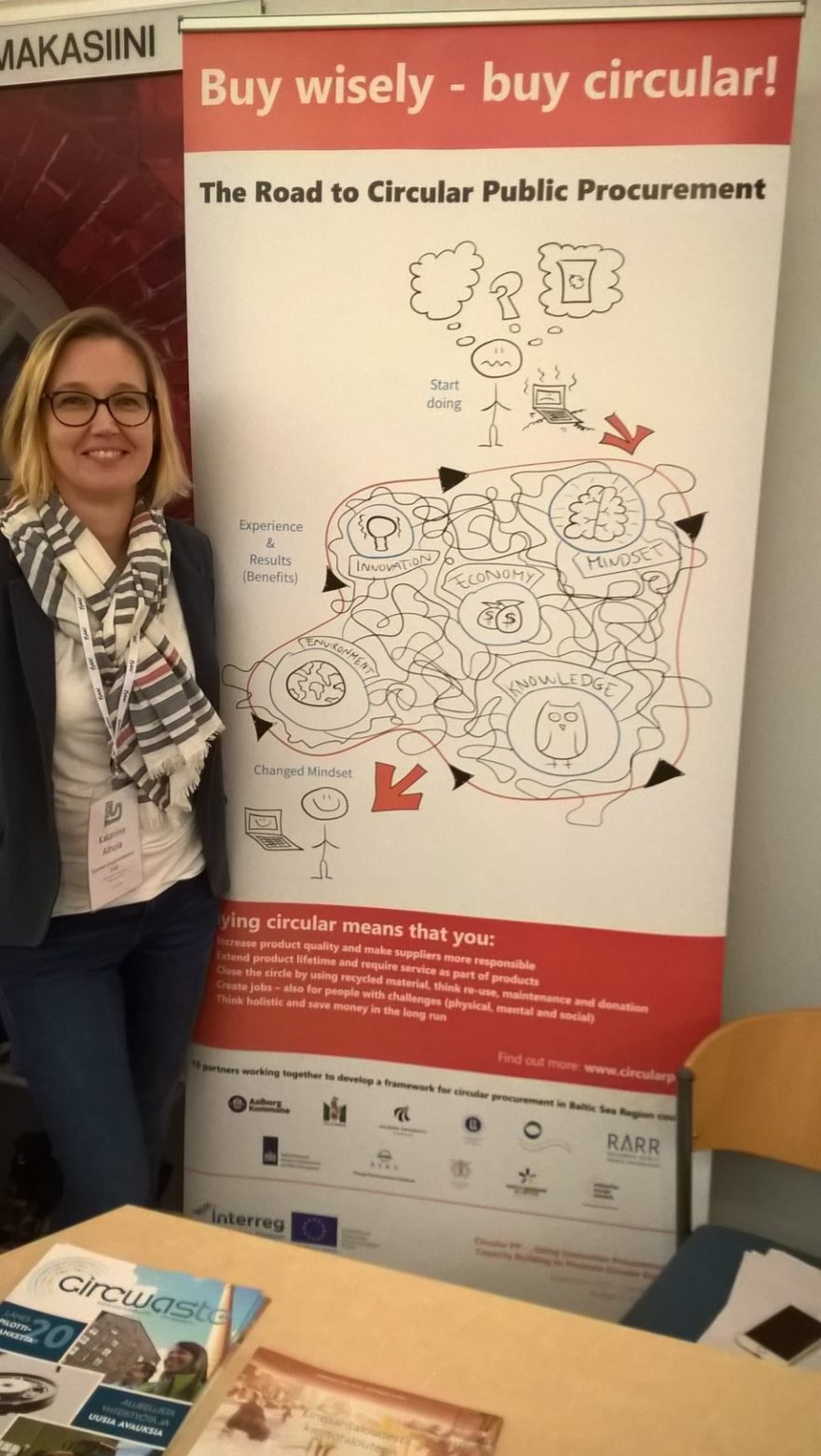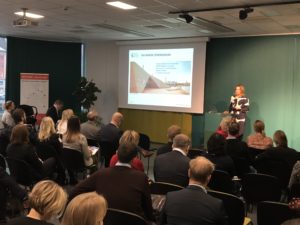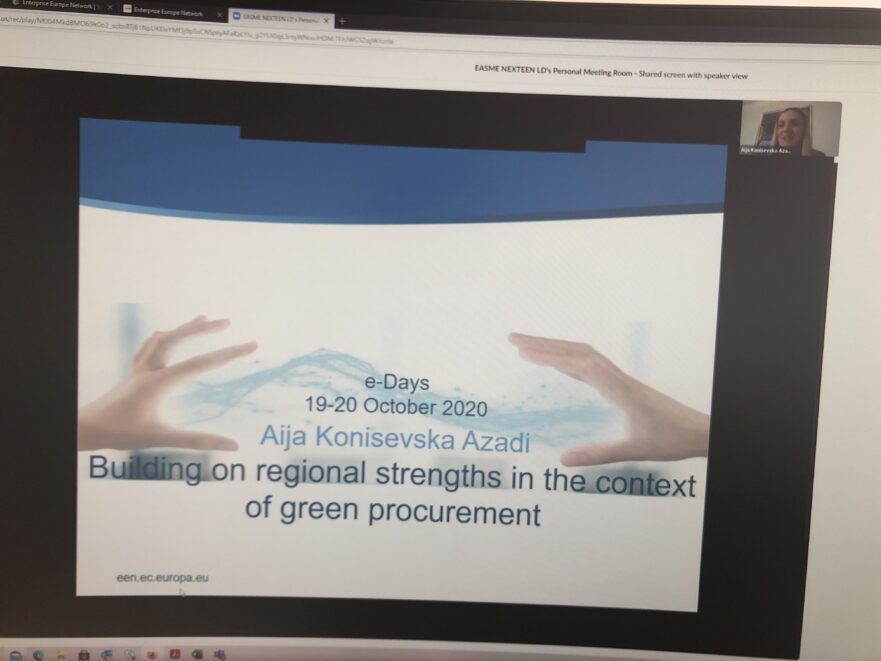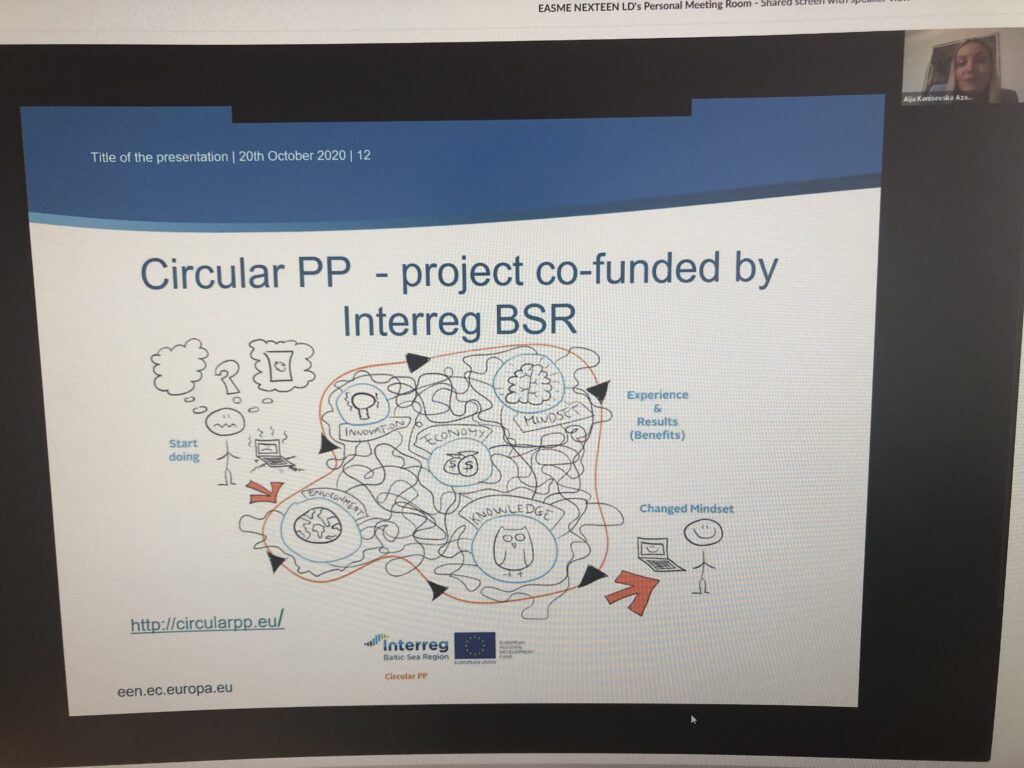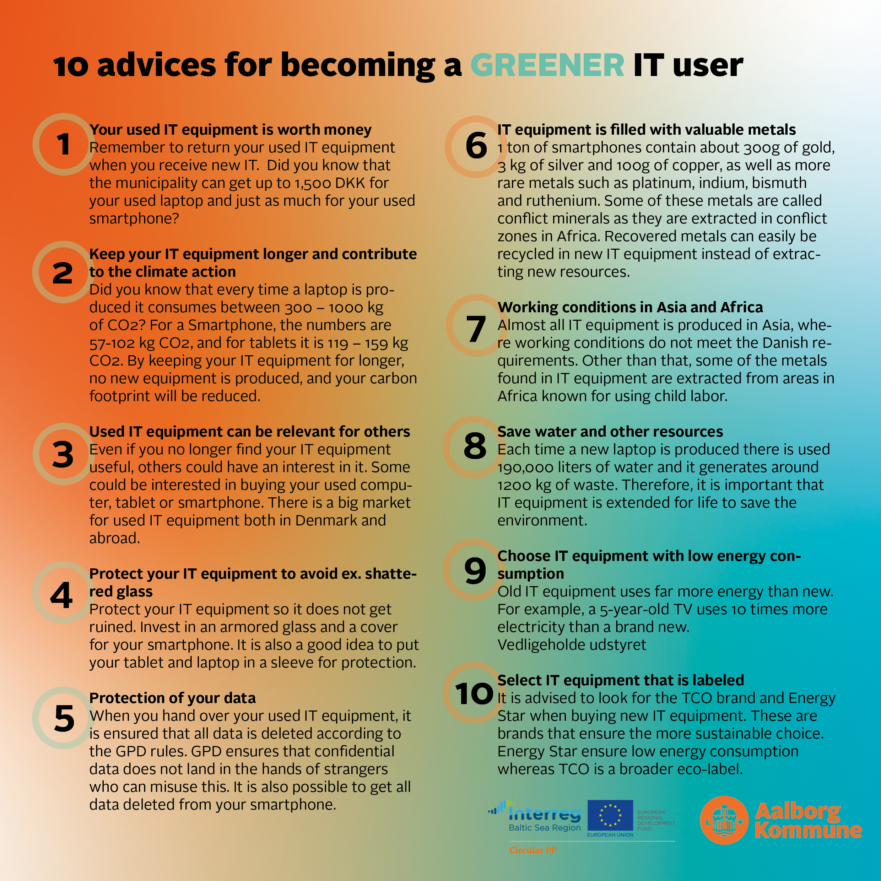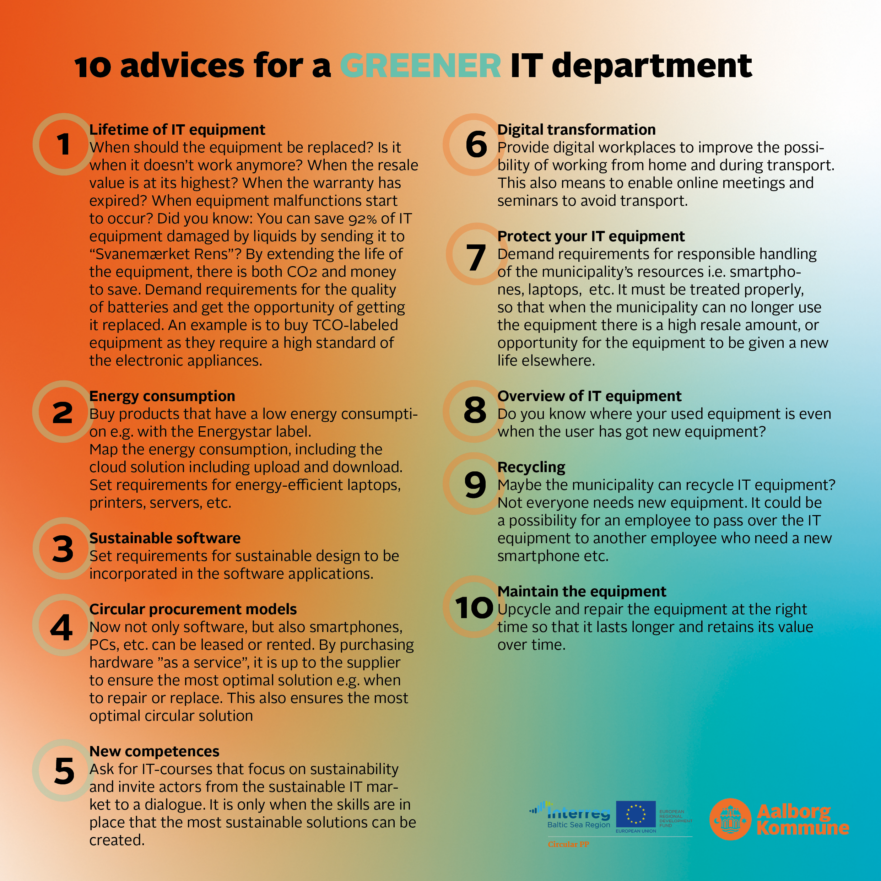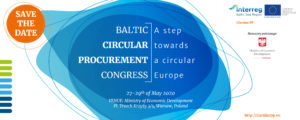How can sustainability principles be applied in public procurement?
What strategies will help buyers start carrying out environmentally
friendly procurement? Are suppliers ready to offer «green» and circular
products?
We discussed these and other issues at the online
seminar “Environmental requirements and circular strategies in public
procurement. What opportunities do public sector customers have and what
can business offer?”. The seminar was held by the National Research
University Higher School of Economics in cooperation with the Ecological
Union (Ecounion) under the Circular PP project.
Circular
Public Procurement is a project supported by the Interreg Baltic Sea
Region Programme. The project is being implemented in the consortium by
Russia and 6 other countries. The aim is to address the societal
challenge of resource efficiency, by considering innovation from a
multidimensional perspective – including involving products, processes
and new business models and by exploiting the synergies between public
authorities, research institutions, SMEs and non-profit organizations in
this field. The main project principle is ´getting-more-by-using less´.
The seminar was attended by 62 participants from public
sector and municipal customers, business representatives, experts in
the field of environmental safety and public procurement. The main topic
was the discussion of a new trend – circular and environmentally
friendly procurement, sharing experiences and opinions on the
possibility and readiness to use new technologies and business models in
entrepreneurship and public procurement.
Comments:
Elena V. Shadrina
Department of Management associate professor (HSE) and chief expert in the Circular Public Procurement project.
«It
became insufficient to carry out public procurement based only on the
economic criteria. Through procurement, the state and private companies
should implement the national strategy for environmental protection and
sustainable development.
We invited representatives of public
sector customers and business, experts in the field of ecology and
public procurement, academic field representatives, students and our
foreign partners to the seminar. Our task was to organize a meeting of
public sector customers and businesses to discuss what eco-friendly and
“circular” (resource-saving) procurement is, and to show the real need
for it and the readiness of business to supply certain groups of
eco-friendly products.
Emil Brüls, representative of the
Rijkswaterstaat agency at the Ministry of Infrastructure and Water
Management of the Netherlands, prepared a very informative and urgent
presentation. Emil spoke about the policy of the Netherlands in terms of
applying the principles of circularity in public procurement and
introduced a lot of examples of procurement based on resource-saving
principles.
Evgeniya Kuznetsova from the “Ecological Union” spoke
about the methods of developing environmental requirements and
compliance certification, for example, the unique in Russia eco-label
“Leaf of Life”. Evgeniya presented our joint development – “Guidelines
for the introduction of environmental criteria in public procurement.
Chemical Safety Criteria “. It is a methodological tool to help
customers introduce environmental criteria in procurement.
Yuliya
Shatunova, brand manager of Stupino Chemical Plant, presented the
company’s experience in the production of environmentally friendly
products, which allowed customers to learn about what can already be
purchased based on the sustainable principles.
Valuable, deep,
meaningful questions from the participants made it possible to organize a
discussion and analyze how to combine the idea of green and circular
procurement with the legal requirements and limitations of real
procurement practice. We are much appreciated to all participants and
speakers! »
Kashin V. Dmitry
Lecturer at the Department of Management (HSE)
«
The circular procurement seminar was very informative and useful.Elena
V. Shadrina gave a very important presentation, describing the concept
of circular public procurement and substantiating the need for
sustainable behavior for organizations. I was also impressed by the
experience of the Netherlands in the development of the circular
procurement system, describing in the presentation by Emil Brüls. Today
the Netherlands is one of the leading countries in sustainable
development.Of particular note is the Russian experience of
environmentally friendly procurement, which was described by Evgenia
Kuznetsova and Yulia Shatunova. Colleagues shared real cases of carrying
out circular procurement by
public sector customers and businesses, which was especially valuable for all participants of the seminar»
Evgeniya Kuznetsova
Head of the certification body of “Ecological Union”
«In
my opinion, the last seminar was very important in terms of becoming a
discussion platform for methodologists, manufacturers and their
potential public sector customers. The listeners’ questions show that it
was the beginning of the most important dialogue between business,
experts and the Government. We hope that the seminar has contributed to
closing the gaps in the methodological field and in the issues of
awareness of the importance of the circular procurement»
Ekaterina Stepanova
Project manager of “Ecological Union”
«It
was very useful and informative seminar! The topic of circular
procurement is covered from start to finish: from the idea and the
global impact on the economy through tools, examples of use in Europe,
scientific and technical justification of procurement criteria and to
particular manufacturers of eco-friendly products that can be already
purchased. The most interesting thing at the seminar was questions and
discussion of the possibilities and prospects of using circular
procurement in Russia. I hope that here has been growing interest in
this idea and probably soon we will see the results at the national
level»
Seminar presentation materials: 1. Presentation by
Elena V. Shadrina 2. Presentation by Emil Brüls 3. Presentation by
Evgeniya Kuznetsova 4. Presentation by Yuliya Shatunova
Video of the seminar: https://www.youtube.com/watch?v=ZlDymNSDwgQ&feature=emb_imp_woyt
Video time codes:
00:00:00 — Welcoming greetings for the seminar participants
00:03:35
— Circular economics and circular procurement. What is it and why is it
needed? The speaker is Elena Shadrina, Department of Management
associate professor.
00:21:00 — Public procurement in the circular economy. The speaker is Emil Brüls, The Netherlands.
01:02:29
— Guidelines for introducing Environmental Criteria into Public
Procurement. Chemical safety criteria. Methodical tool for buyers,
experts. Speaker: Evgenia Kuznetsova, head of the certification body of
“Ecological Union”
01:23:10 — Eco brand GreenLove. Speaker: Yulia Shatunova, brand manager of Stupinsky Chemical Plant CJSC.
01:35:00 — discussion and Q&A session
